A-levels: Why are students so unhappy about this year's results?
- Published
- comments
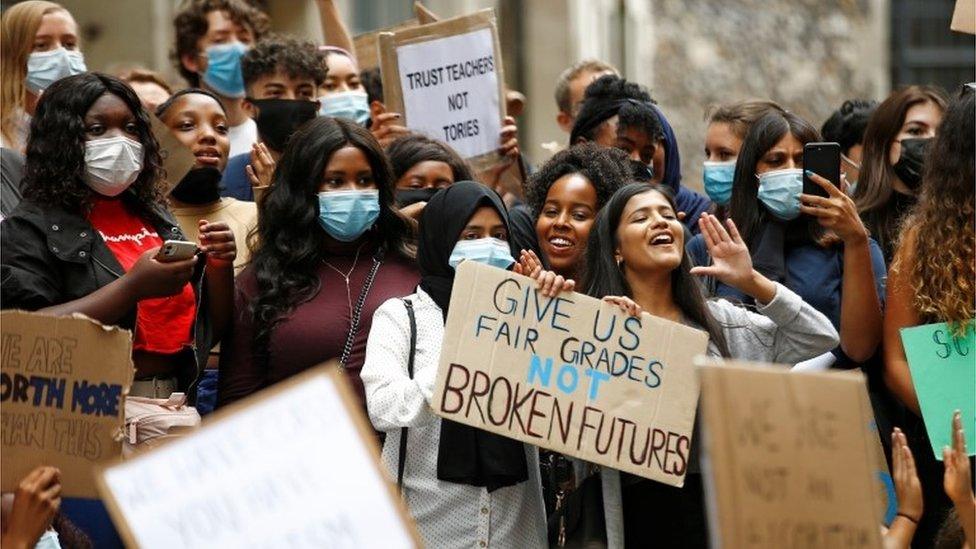
There is a lot of anger towards the government after two in every five of this year's A-level results were downgraded from teacher predictions.
This year was unusual because the coronavirus pandemic meant students couldn't physically take the exams.
Teachers were instead asked to submit predicted results and then the government used a specially designed calculation to work out the final grades.
There has been a lot of concern about these final grades and whether they've been calculated fairly. Experts are also worried about what will happen about GCSE exams - those results are due out on Thursday 20 August.
Here is what you need to know.
What are A-levels?
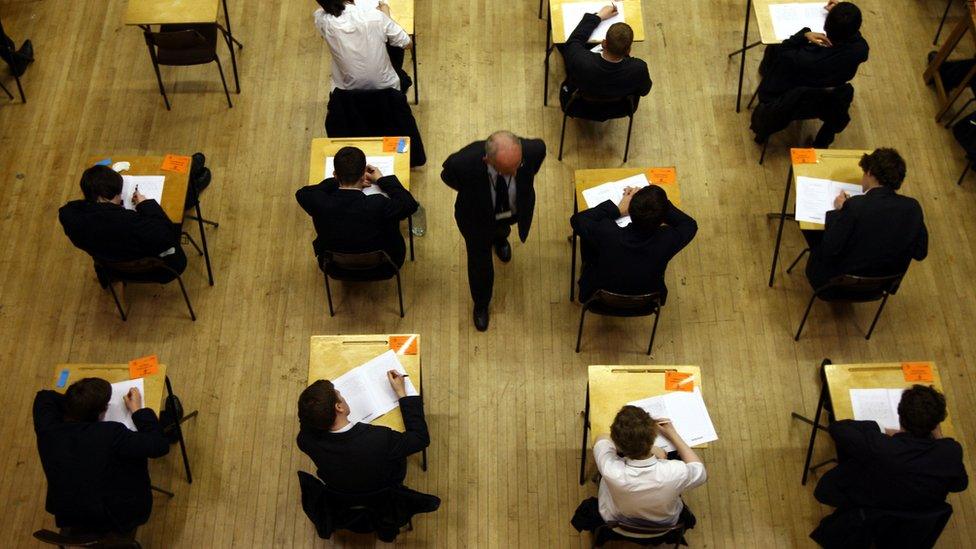
A-levels are advanced qualifications offered by schools and colleges in the UK.
A student will commonly study for A-levels between the ages of 16 and 18, following the completion of high school.
Traditionally, a student will take between three and four subjects, tailored towards appealing to the universities they want to go to.
Universities in the UK use the results to determine who they want to accept.
What has happened?

The coronavirus pandemic meant that students couldn't physically take A-level exams this year.
Teachers had to give estimated grades for students depending on what they believe they would have achieved in their exams.
Grades were determined based on the work pupils have done throughout the year and practice exams taken earlier in the year - known as mock exams. Students were also ranked by their teachers.
These grades were then checked by exam boards, which looked at factors like a students' previous exam results and schools' past performances to work out what grades should be awarded to pupils.
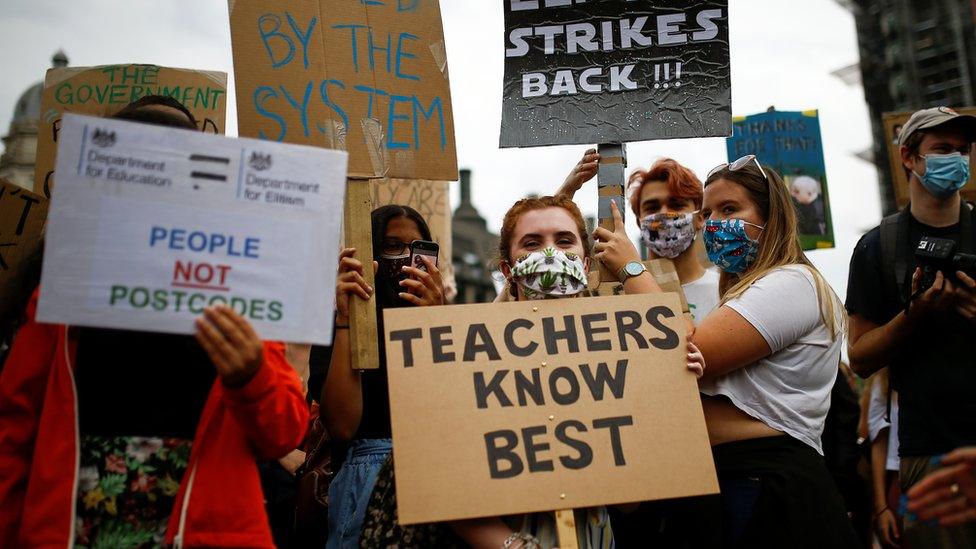
However, lots of students were unhappy because 280,000 results were downgraded from what teachers had predicted.
The mathematical sum used to determine grades meant that many high-achieving students at low-achieving schools saw their grades downgraded.
Whereas, pupils at high achieving schools - which include lots of fee paying private schools - have seen record results, with more top grades than in almost 70 years of A-levels.
What has the government said?
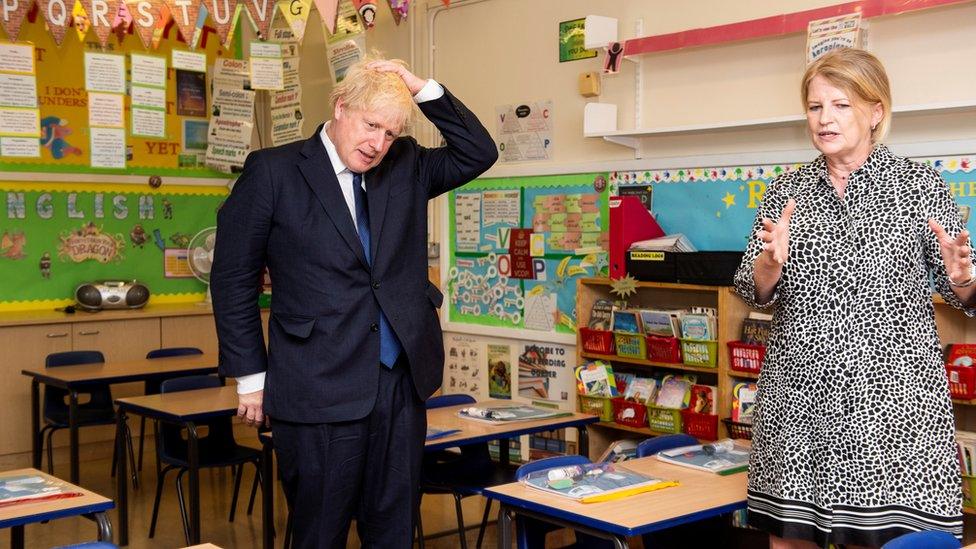
The government has defended its approach to determining grades, with the Prime Minister, Boris Johnson, describing them as a "robust set of grades".
He's said pupils can re-sit their exams in the Autumn if they are unhappy.
However, since the results were released there has been a lot of confusion, with lots of student unsure where to go next.
On Saturday, Ofqual - the organisation that oversees exams to make sure they are fair - released guidance on its website for students looking to appeal their A-level results.
Just hours later, it deleted the advice and said further guidance would be released "in due course".
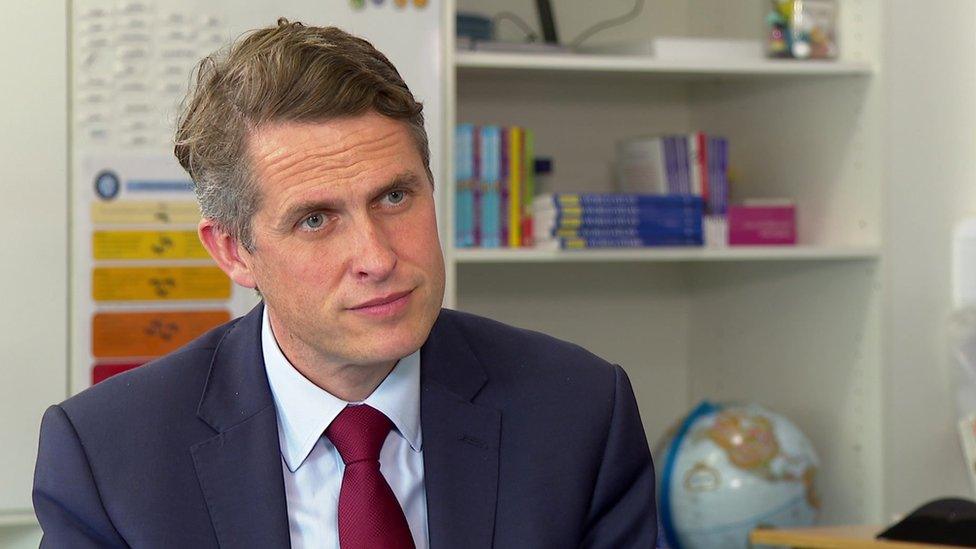
Education Secretary Gavin Williamson has told children he is 'incredibly sorry' they have suffered.
The government had previously announced something called a "triple lock" system before the results were released.
This meant that students had three options. They could accept the grade, appeal to receive a mock grade or sit autumn exams.
However, the Ofqual guidance released on Saturday threw this system into doubt, suggesting that if the mock result was higher than the teacher's prediction, it was the teacher's prediction that would count.
In Scotland, the government has reverted back to the predicted grades provided by teachers, after a moderation system saw 125,000 estimated results being downgraded.
In Wales, the government has confirmed that students will be allowed to appeal if there is evidence that they should have received higher grades.
The Northern Ireland Assembly - which is currently on a summer break - has been recalled to discuss the situation.
The Education minister Peter Weir has said he's working to make sure this is done at no cost to the student.
What is going to happen next?
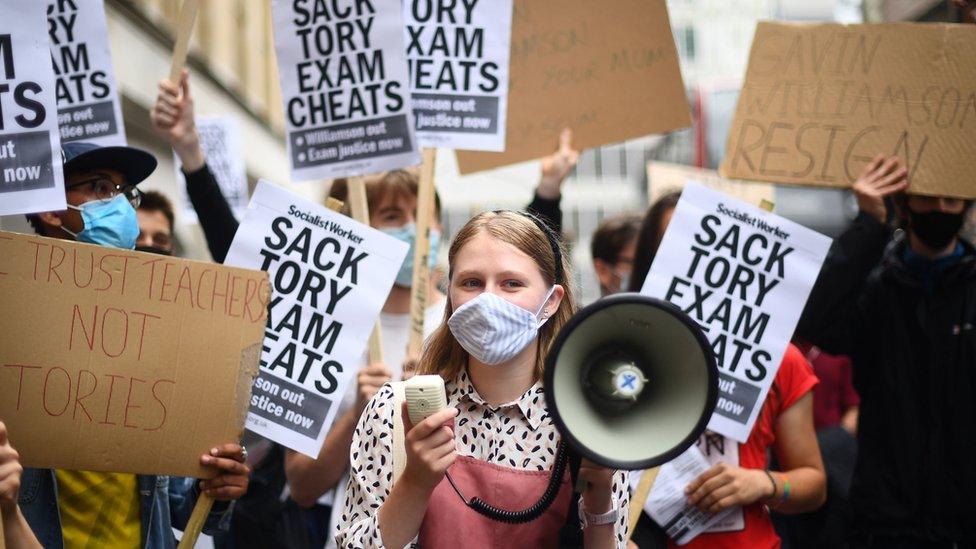
Thousands of students protested in London over the weekend and some petitions online calling for a fairer system have received over 200,000 signatures.
Campaigners have said they will take legal action against the government over the results if there isn't a resolution.
There are now worries over the results of GCSE students - which come out this week - because they have been worked out using the same system.
The government has confirmed schools in England will be able to appeal against A-level and GCSE grades for free.
In Northern Ireland GCSE students will have their results decided based on teachers' predictions, after the controversial moderating system was scrapped.
- Published16 August 2020

- Published17 August 2020

- Published14 August 2020

